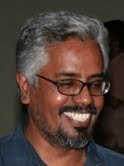Television and Electioneering
Television and Electioneering
In his 1964 classic, Understanding Media, Marshall McLuhan makes a very perceptive observation about the frustration people experience with the medium of Television and its "self-imposed silence" on great issues of the day. According to him, "as a cool medium TV has … introduced a kind of rigor mortis into the body politic. It is the extraordinary degree of audience participation in the TV medium that explains its failure to tackle hot issues". For McLuhan, radio is much more of a medium of frenzy, it is "the major means of hotting up the tribal blood of Africa, India and China" while "TV .. has cooled Cuba down, as it is cooling down America. What the Cubans are getting by TV is the experience of being directly engaged in the making of political decisions". One wonders whether he would stand by his words now.
This experience of "being directly engaged" is the most intriguing factor. If one looks at the last decade of TV in Kerala, it is obvious that this medium has played a decisive (or even transformative) role in day-to-day politics in the state. (Now any budding politician has to train himself or herself to be a TV personality also). During recent times, many a political wave and swing was created by live telecasts, and many a persona made iconic or abhorrent through it. True, it has succeeded in keeping certain issues alive, raking up certain others, sometimes witch hunting and at other times, idolizing. But when one looks at it closely, has TV been able to shape or influence the political agenda in Kerala? Has it helped in making our civil society more vibrant and responsible? Has it empowered people in the real sense, enabling them to ask informed questions about issues of public interest?
Take for instance, the coverage of elections and electioneering in Malayalam. Beyond the haggling over seats and the intricate arithmetic of coalition combinations, has television probed or pinned political parties, leaders or fronts making them address questions of vital and immediate relevance to Kerala society and polity? Has there been a serious attempt at analyzing the Election Manifestoes, making leaders to adhere to it and to review the promises made in its earlier editions? And most importantly, where do the youth (who constitute a very large and unpredictable constituency in the elections) figure in all this? Beyond roads and bridges, does life-and-death questions regarding issues crucial to the youth of Kerala like higher education, cost of education, perspectives about future ICT scenario, employment etc find a place in our election discourses?
It is a pity that our election analysis and discourses are markedly middle-aged. They voice and address the aging demography of Kerala's life and imagination. The youth are beyond its pale of understanding, something that is sadly reflected in our 'predictions' and predilections.


0 Comments:
Post a Comment
Subscribe to Post Comments [Atom]
<< Home